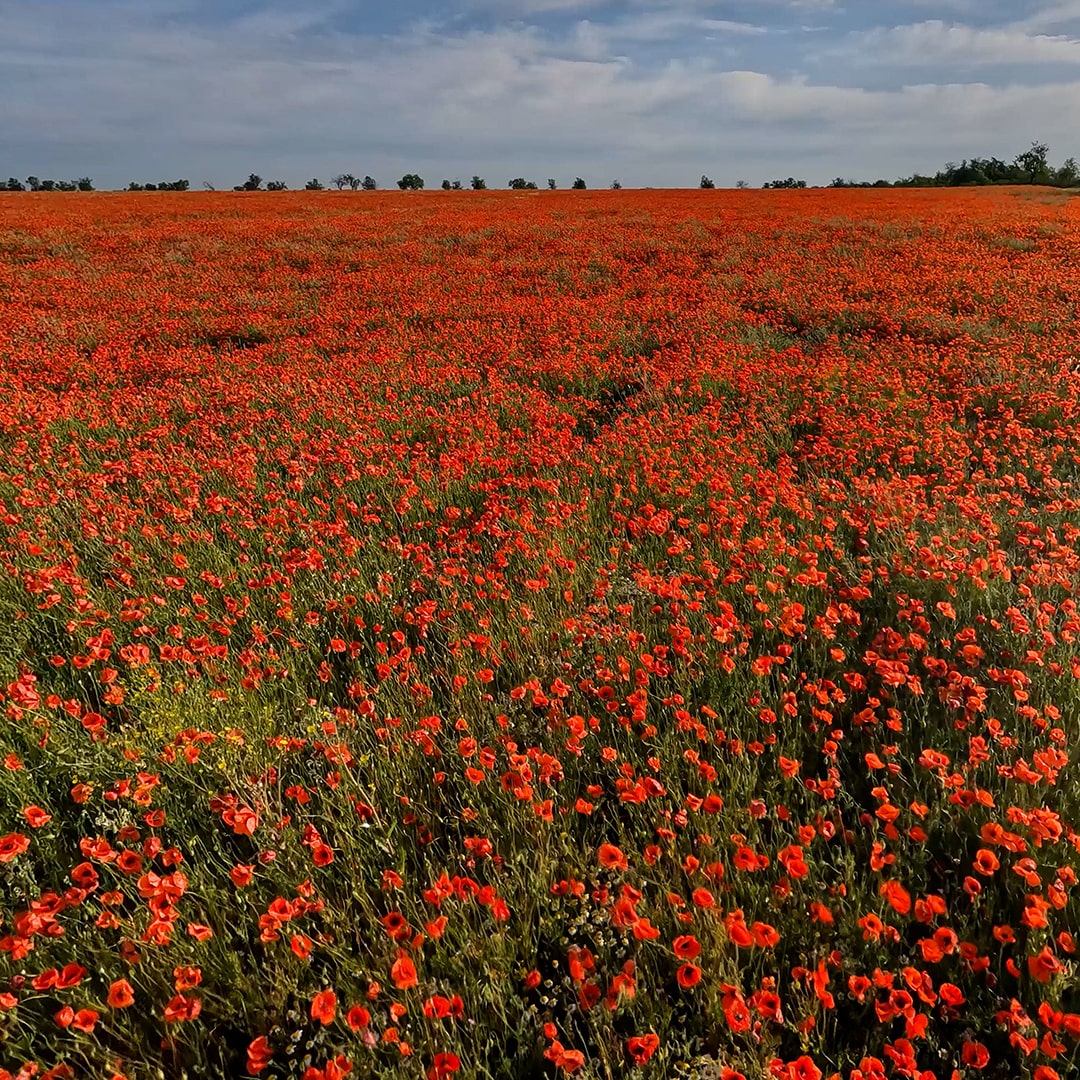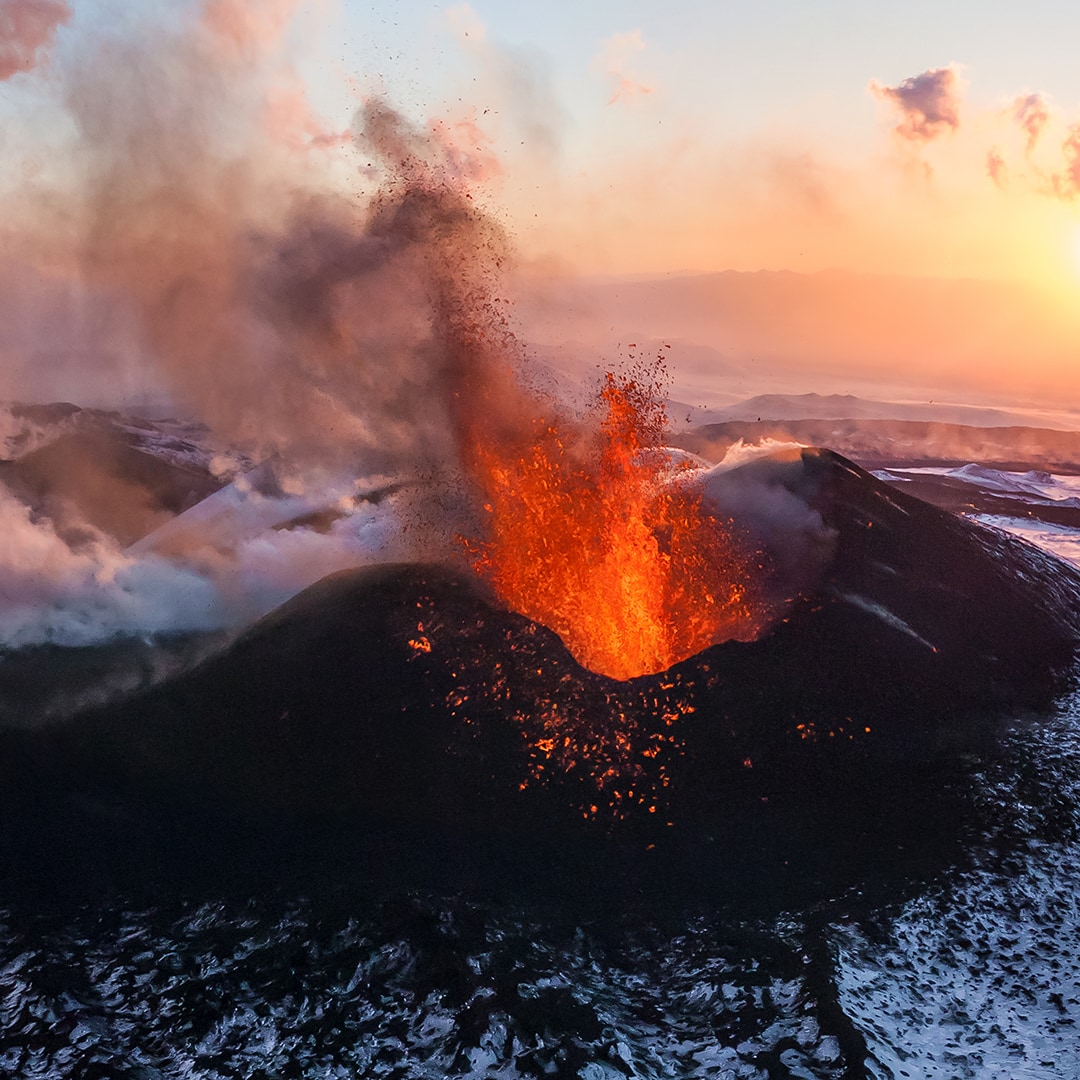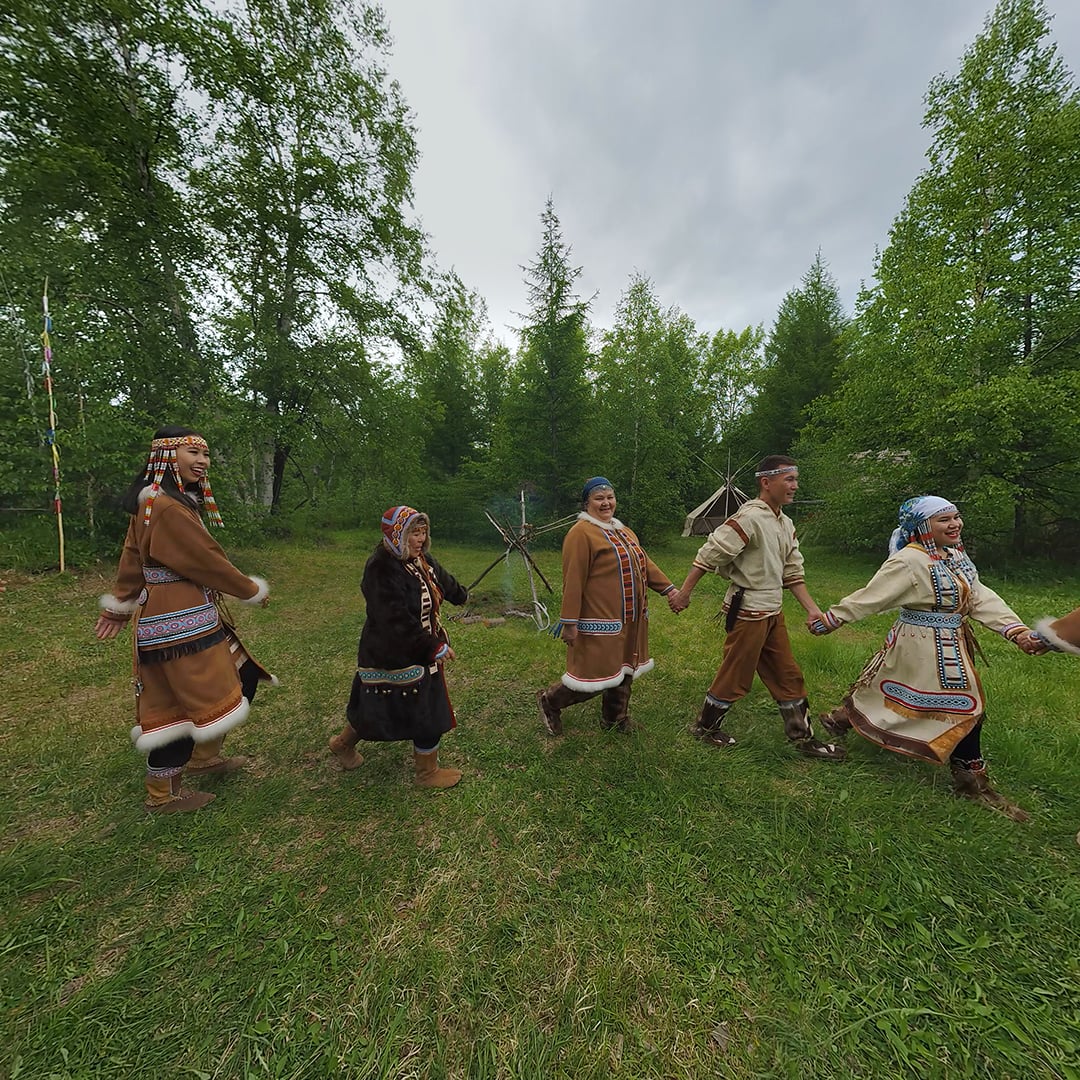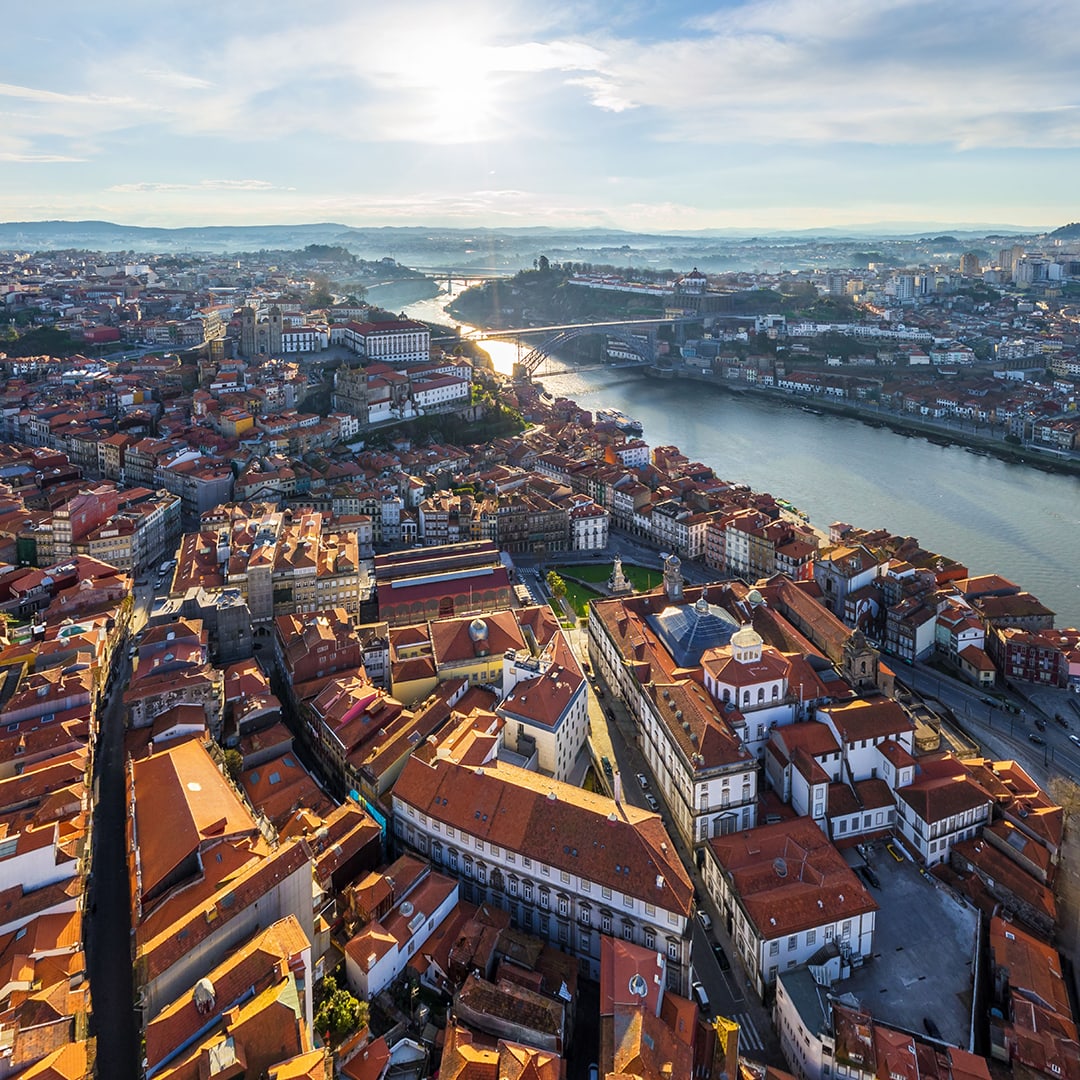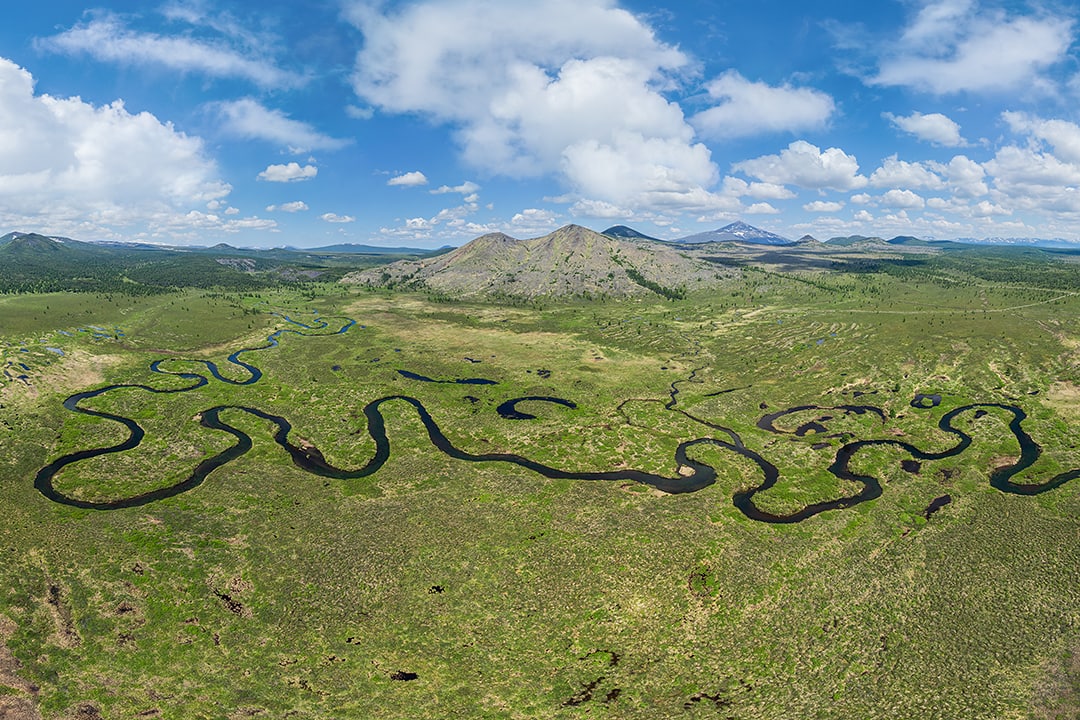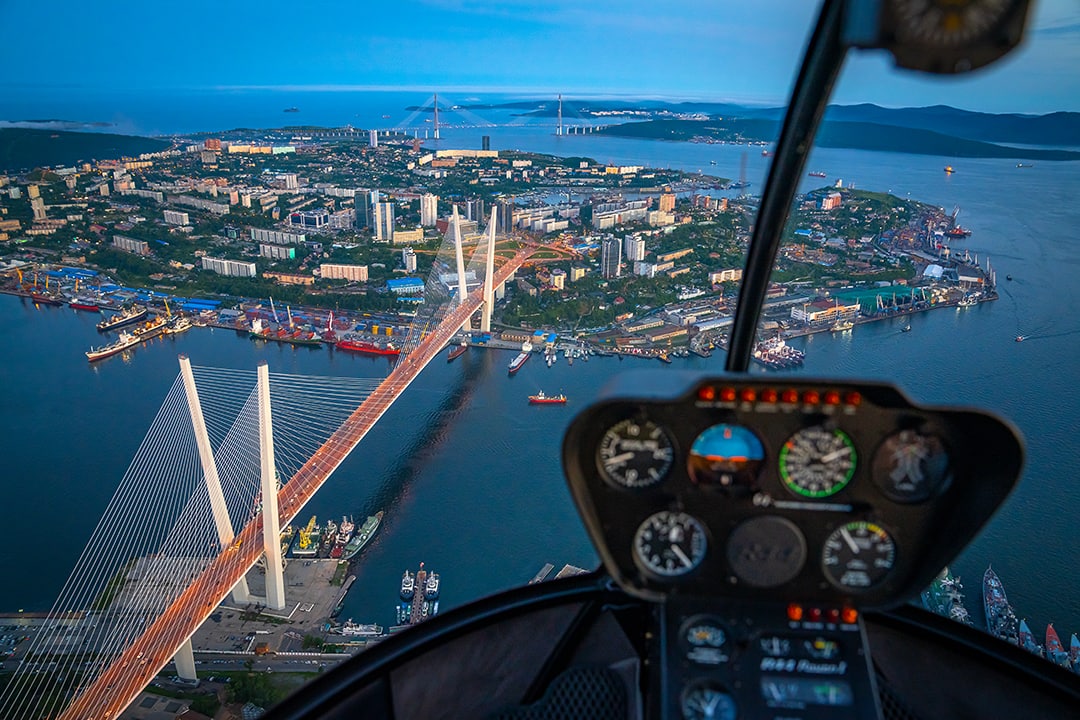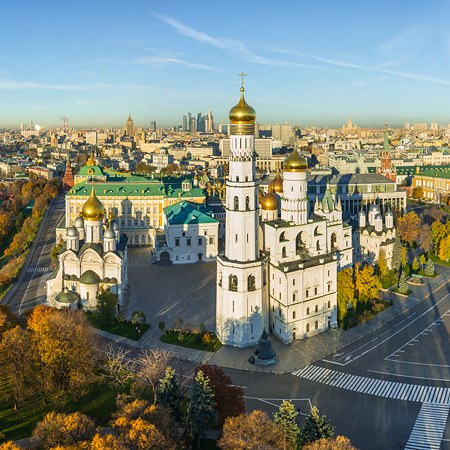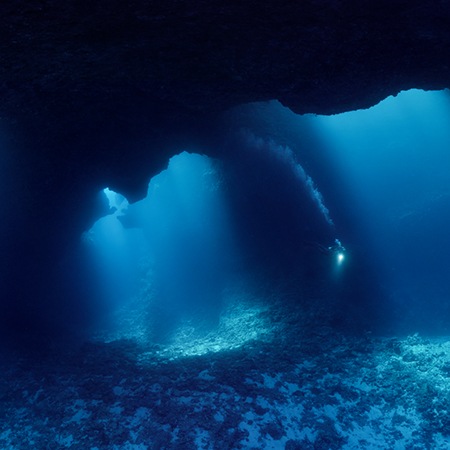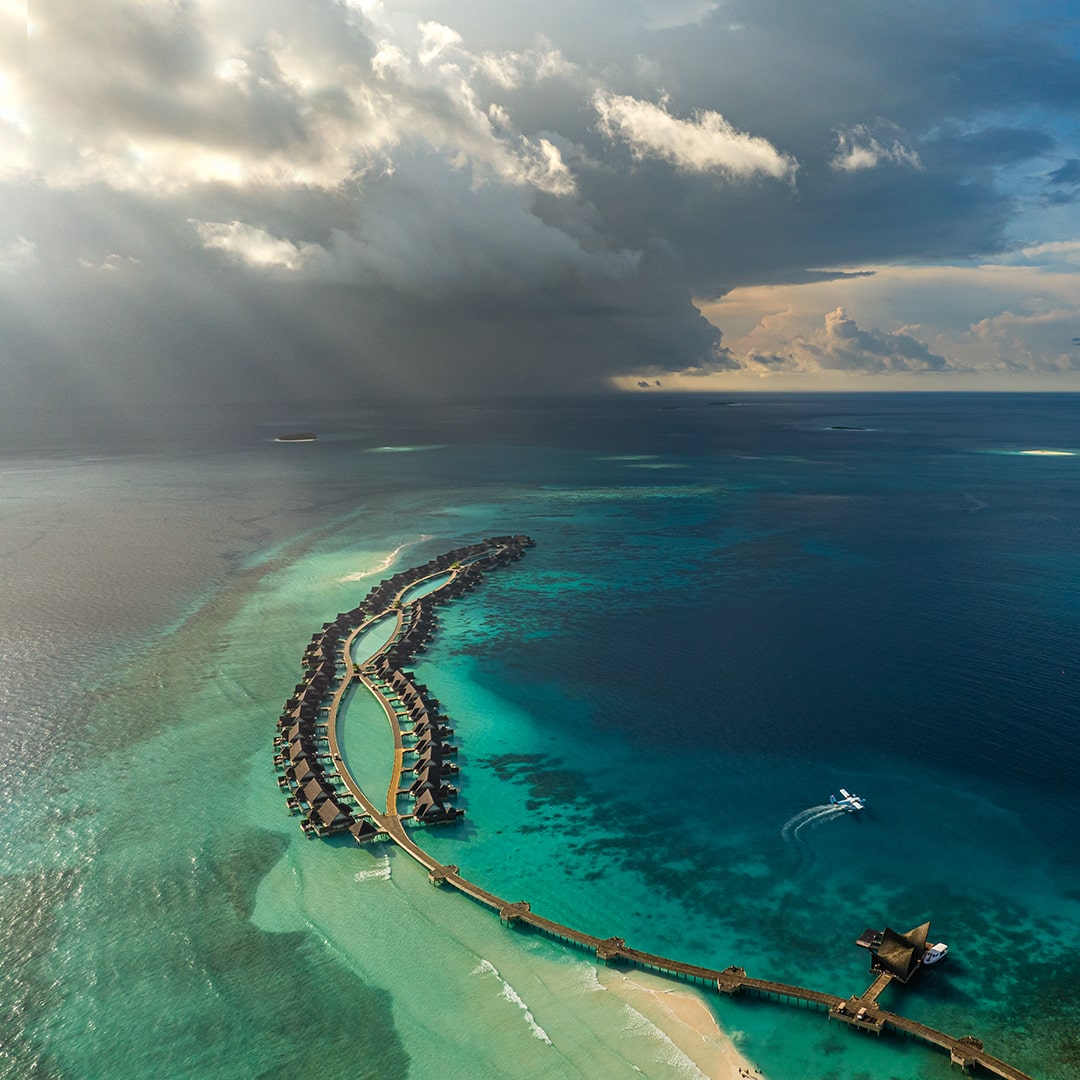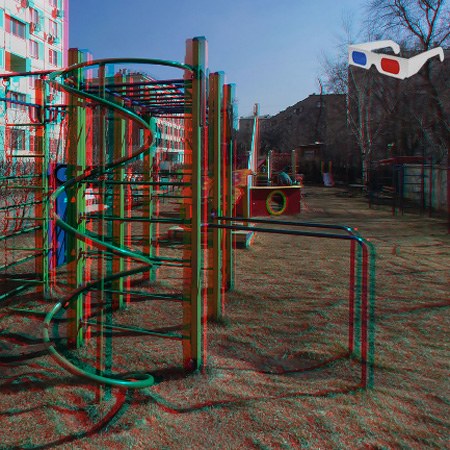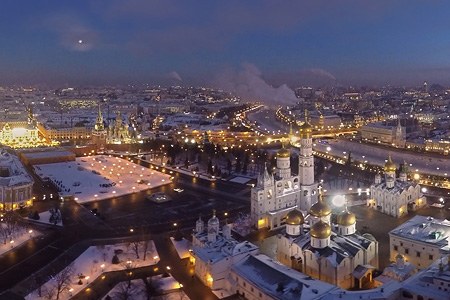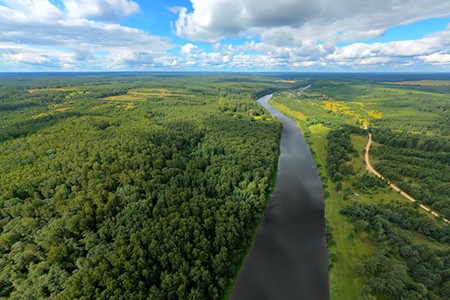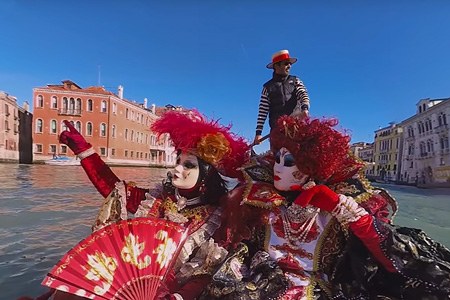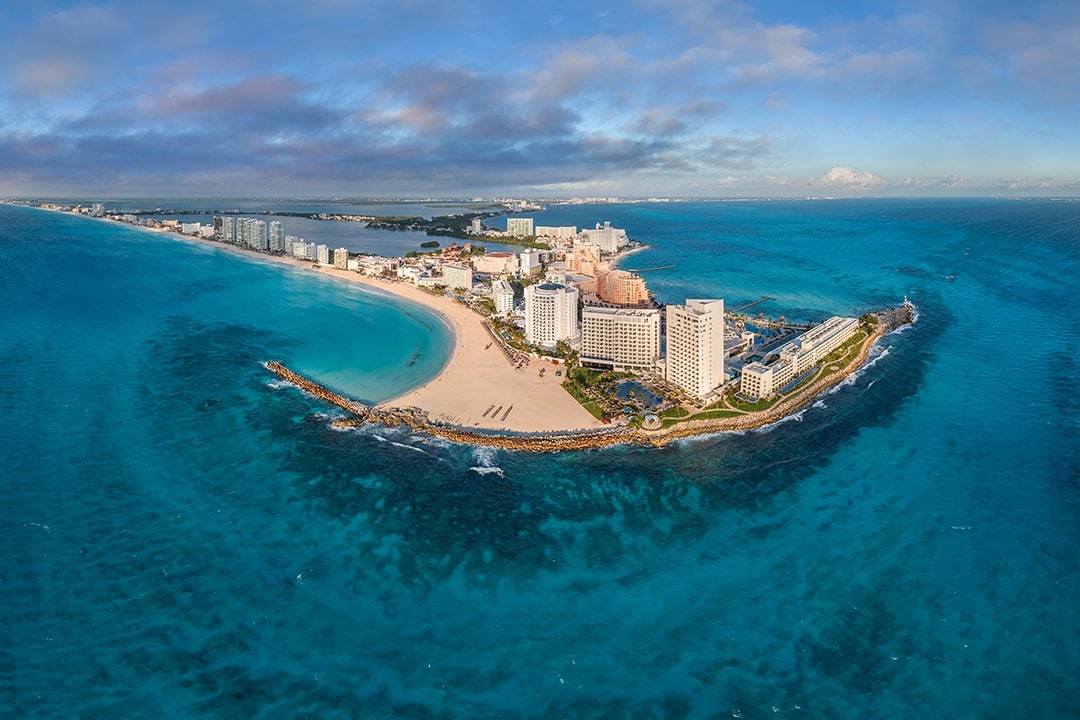Danube river, Paks, Hungary
I have always had an eager desire to travel the world, to see the most wonderful places, to wonder at how beautiful our planet is. For me, the pinnacle of beauty has invariably been tropical islands, the intense blue and green colours of the sea. Again and again, I chose some remote island on the map, I looked into the distance, always travelled to a far-flung place. But I have realized that I have been blind and nature in its extraordinary beauty has always been around me, right at my doorstep: at home. My sleepy hometown, Paks, lies next to the Danube river, the second-longest river in Europe after the Volga. This series of aerial and ground panoramas is my love letter to my home. This is where I grew up, this is where I have my family and friends.

The pandemic forced most of us to stay at home, so we all did our walks and little excursions and escapes from the home prison in the immediate vicinity. Some years ago I decided that I was going to make an aerial project of my hometown, and especially of the Danube river. Yet I would have never expected to discover such a Sleeping Beauty. Winter weather, the foggy mornings, the golden sunsets, the freezing sunrises paint vibrant colours on the landscape and dress the Danube in the most exquisite of clothes.

I spent five and a half months on this project, and I had to get up early on many occasions — something I am not a huge fan of, as none of us. But seeing this face of the Danube river was very rewarding. I could witness fleeting moments of beauty, while most of the inhabitants of the town were sleeping unaware of nature's spectacle unfolding.

Well, here are the results of my work. This project made me realize that nature's beauty is omnipresent, you can discover it anywhere in this world, even in a small mundane town in the middle of Hungary. I wanted to prove to the world that your home can look just as stunning and impressive as the Seychelles islands. Maybe I am biased, but the Danube shrouded in mist and lit by golden rays of the sun is just as beautiful — or even more beautiful than the places I photographed before.

So let me say a few words about the Danube and Paks.
The Danube used to be the frontier of the Roman Empire and today is the river running through the largest number of countries in the world: originating in Germany, the Danube flows southeast for 2,850 km, passing through or bordering Austria, Slovakia, Hungary, Croatia, Serbia, Romania, Bulgaria, Moldova and Ukraine before draining into the Black Sea. The largest cities on the river are Vienna, Budapest, Belgrade and Bratislava, all of which are the capitals of their respective countries. But the most important town next to the river is of course Paks, at least for me! The bend of the Danube at Paks is a significant feature of the river from above. On several panoramas, you can see so-called breakwater structures protruding into the river. These are of course man-made, and their purpose is to straighten the flow of the river, otherwise, the bend would get sharper and sharper and the town would be eaten away by the water.

Paks is a relatively small town, built upon three small hills, but it has a significant role in the economy of Hungary, as it is the site of the one and only nuclear power plant of the country. Most of the people living here work at the power plant. It is visible on the far South end of the town in some of the pictures. Currently, there are plans to build a second nuclear power plant, in cooperation with the Russian company Rosatom.

There are already numerous Russian engineers present in Paks. I often meet them at the outdoor gym facilities or at the Erzsébet Nagyszálloda (Elisabeth Grand Hotel), where you can taste the traditional Hungarian dishes, such as the fish soup made with carp (the fish soup from Paks is famous in Hungary), or the catfish stew with dumplings, sour cream and bacon. My favourite!

The most conspicuous landmarks of my home town are the churches: the Catholic, the Protestant ("Evangélikus"), Calvinist ("Református") and the Heart of Jesus ("Jézus Szíve Templom") Church, which is also a Catholic one. The latter was designed by renowned Hungarian architect Imre Makovecz, one of the proponents of organic architecture, heavily influenced by traditional Hungarian art.

It is really a pity only a few of the locals ever notice the presence of the Danube. It is one of the veins of Europe, it is a direct link to the seas and oceans, it is beautiful, and quite simply it is an unexploited surface of the water for doing sports, to sit by and relax, to make excursions in the Imsós forest, which is regularly flooded by the Danube.

I hope that this virtual tour will motivate you to come and visit Hungary: Budapest is a must-see, so is Lake Balaton, and there are many beautiful places along the Danube too: Esztergom, Visegrád. And maybe on the way, you might pass by a stop at the best part of the Danube: Paks, the town where I live.

Photos and text by Ádám Plézer
2 July 2021
Read more
Photogallery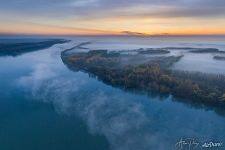 Europe's giant river sleeping under the blanket of fog
Europe's giant river sleeping under the blanket of fog
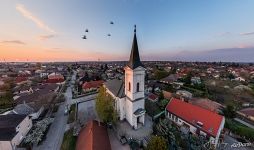 Protestant Church
Protestant Church
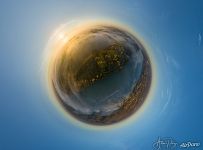 Danube Planet
Danube Planet
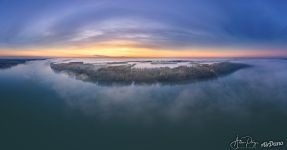 Winter dream over the Danube
Winter dream over the Danube
 The sun, a ruby on the horizon
The sun, a ruby on the horizon
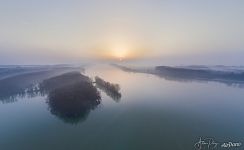 The Danube and its golden crown on a misty morning
The Danube and its golden crown on a misty morning
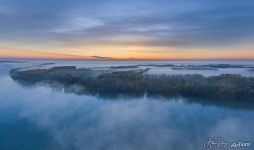 Winter dream over the Danube
Winter dream over the Danube
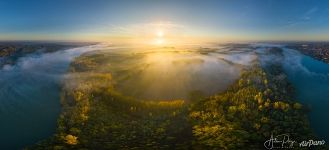 Golden leaves and a white blanket: autumn is soon over
Golden leaves and a white blanket: autumn is soon over
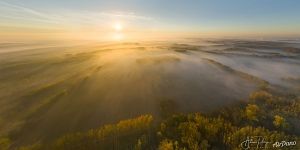 Golden leaves and a white blanket: autumn is soon over
Golden leaves and a white blanket: autumn is soon over
 Icicles over the Danube
Icicles over the Danube
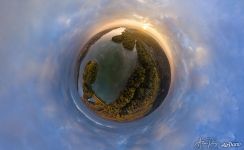 Danube Planet
Danube Planet
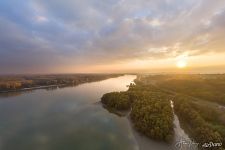 I love Paks - Heart shaped forest in the golden flood of the setting sun
I love Paks - Heart shaped forest in the golden flood of the setting sun

